The Work Plan is Africa’s first private sector-led collaborative platform on the future of work for policymakers, the private sector, academia and Nigeria’s youth. The Workplan was launched in 2019 by Rise Networks to develop a practical blueprint for developing formal and informal skills of young people that are essential to job creation and the sustainable growth of Africa’s various sectors and industries ahead of the Fourth Industrial Revolution.

Toyosi Akerele-Ogunsiji
Focus Areas to Drive Action
Tech Education and Human Capital Development
Healthcare
Food and Agricultural Development
Financial Inclusion
Oil, Gas and Energy
Arts and Entertainment
Policies and the Political Economy
Defense and National Security
Numbers Speak Louder
Workplan in Numbers
1
International Event
50+
Speakers
6000+
Delegates
25
Strategic Partners
12+
Publications
By 2030, Africas burgeoning workforce, when equipped with essential infrastructure and innovation-centric skills, positions itself among the world largest. The 4IR emerges as a monumental avenue for expansive growth”, as highlighted in Chapter 5 of the Foresight Africa 2020 report.
Africas agricultural prowess remains largely untapped, offering a prime arena for the adoption of 4IR technologies. With farming commanding 60% of total employment in sub-Saharan Africa, the agricultural sector, fueled by 4IR, is anticipated to generate more jobs than the entire economy combined from 2010 to 2025”, as outlined in Chapter 5 of the Foresight Africa 2020 report.
While economic progress and regional integration unfold across African nations, the potential proliferation of transformative technologies like artificial intelligence and the internet of things looms large. However, the continent faces critical challenges, including a scarcity of digital skills, cohesive leadership and fundamental infrastructure, posing a risk of missing out on a pivotal industrial revolution”. This stark warning emerges from the Foresight Africa 2020 report.
African agriculture is poised to claim half of the entire employment in Africa by 2023”, according to the International Labor Organization (ILO).
Witness the dynamic rise of Africa;s digital economy, projected to soar to $180 billion by 2025, constituting 5.2% of GDP. The momentum continues, with expectations reaching $712 billion by 2050, contributing 8.5% to GDP”. The African Center for Economic Transformation (ACET) underscores the immense potential of digitalization, heralding new job opportunities and enhancing the productivity of existing roles.
By 2030, artificial intelligence is poised to inject an impressive $15.7 trillion into the global GDP, unveiling a wealth of opportunities. Of this staggering sum, $6.6 trillion is projected to arise from heightened productivity, while a substantial $9.1 trillion will emanate from consumption effects. To ensure Africas active participation in this global AI surge, experts emphasize the urgency of swift actions. Brookings advocates for strategic governmental initiatives, urging the promotion of economic growth, structural transformation, poverty alleviation, inequality reduction, enhanced financial services, investment amplification and the modernisation of crucial sectors like agriculture and healthcare. In the unfolding decade, African progress hinges on accelerated technological development, with experts deeming it essential for the continent to outpace the rest of the world. Youssef
Travaly, Vice President of Science Innovation and Institutional Partnerships at the Next Einstein Forum, emphasises the need for agility, citing the historical shift from regular phones to smartphones, which took 20 to 25 years. A rapid transition within a decade is imperative to avoid Africas perilous dependency on external economies. Without prompt advancements, Africa risks precarious reliance on foreign economies, particularly in energy. The continents dependence on new energy sources from developed nations may rise, leaving locally oil-dependent economies obsolete in the global market. In healthcare, the inability to address critical medical challenges innovatively could further marginalise Africa on the global stage.
The WORK PLAN 2019
THE WORK PLAN 2024
Frequently asked questions
Everything you need to know about the Work Plan
To get involved in The Work Plan, you can stay informed about upcoming events, initiatives, and opportunities by visiting our website. Additionally, you may explore partnership possibilities or attend relevant sessions to actively contribute to the collaborative efforts shaping the future of work in Africa.
Absolutely! Organizations interested in collaborating with Rise Networks for The Work Plan can reach out through the provided contact channels on our website. We welcome partnerships that align with the goals of The Work Plan and contribute to the collective effort in preparing for the 4th Industrial Revolution.
Participants can expect tangible outcomes such as the development of a practical blueprint, policy recommendations, and skill development initiatives. The collaborative nature of The Work Plan ensures a diverse range of perspectives, leading to comprehensive solutions for the challenges posed by the 4th Industrial Revolution.
The frequency of events and sessions may vary, but The Work Plan is committed to providing regular opportunities for engagement. Stay updated on our website and social media platforms for information on upcoming events, discussions, and collaborative sessions.
The Work Plan recognizes the value of global perspectives. International participants interested in contributing to the dialogue on the future of work in Africa are encouraged to explore collaboration possibilities and engage in relevant discussions.
Individuals can stay informed by regularly checking our website for updates, subscribing to our newsletter, and following our social media channels. These platforms provide real-time information on events, publications, and opportunities related to The Work Plan.
